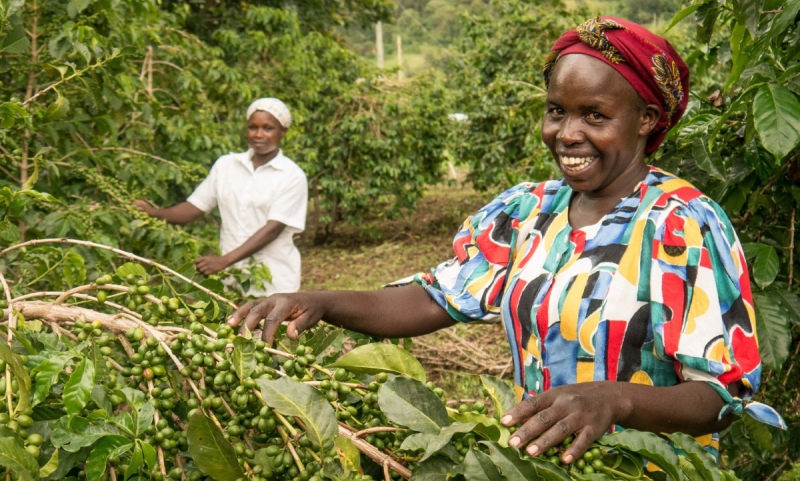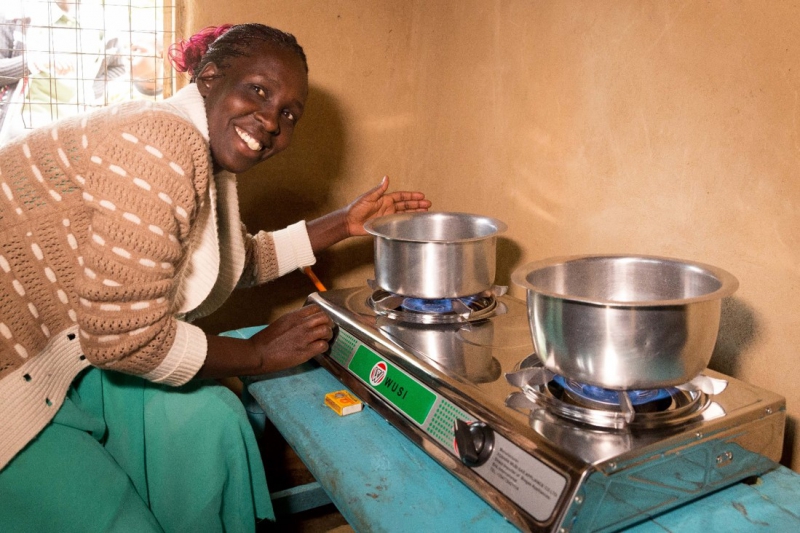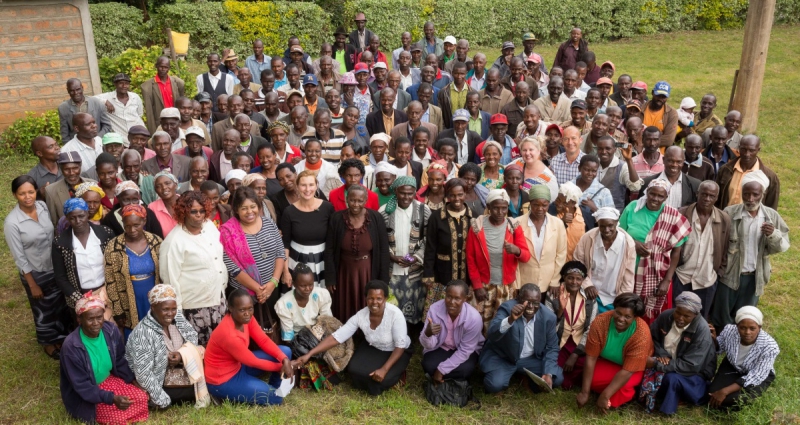
Zawadi Coffee – the Swahili name for gift – is giving women in western Kenya the gift of an independent livelihood. In the highlands of Kenya’s Rift Valley, women are growing their own coffee as part of a pioneering Fairtrade project and success story, Growing Women in Coffee. Launched in 2010, the project empowers women to plant, grow, harvest and sell their own coffee, and earn an income independent from their husbands.
Female farmers in Kenya seldom own land or coffee bushes, despite contributing nearly 70% of the labour required to produce coffee. The land and coffee bushes usually belong to the men in the family, and as a result, women were unable to join farming cooperatives, sell their own coffee, or earn an income for their work. A lot of the family responsibility lies with the women – everything from cooking, cleaning, caring for the children and collecting firewood – but they have no property or money of their own.
“In Kenya, a woman will first help out on her father’s farm, and then she will work on her husband’s farm when she is married. She will work often 12 hours a day, tending the coffee bushes and attending to household duties.” – Marion Ng’ang’a of Fairtrade Africa
Empowering women
With the support of Fairtrade Africa, women were gifted coffee bushes by their husbands, which enabled them to form and become members of the Kabng’etuny and Kapkiyai Women in Coffee Associations. Through these cooperatives, the women have been empowered to learn more about coffee husbandry, environmental conservation, entrepreneurship and leadership skills, marketing techniques, and sustainable farming practices, all of which have helped them obtain Fairtrade certification and earn their own income.
“Because they own their own coffee bushes they can be a member of the cooperative society, they can attend meetings where their voices are heard, and they can learn how to grow higher quality coffee.” – Marion Ng’ang’a of Fairtrade Africa
The Kabnge’tuny and Kapkiyai cooperatives are in the highlands of the Kenyan Rift Valley, where the climate and soil provides ideal conditions for growing premium Arabica coffee. The women have been trained in good agricultural practices to increase their quality and yield, as well as how to protect themselves and their crops from climate change. They’ve also been assisted by the construction of biogas units in their homes as an alternative to firewood and charcoal, which reduces the time women have to spend gathering firewood.

Changing lives through fair trade
Fairtrade is about reducing poverty in developing countries through fair terms of trade. It empowers farmers and workers through better prices for their product, increased market access, improved working conditions, technical support, and sustainable farming practices. Basically, when you pay a higher price for Fairtrade coffee, the money goes directly to the farmers who grow it, helping them to improve their skills, uplift their communities, and protect the environment. And in this case, supporting Women in Coffee associations promotes gender equality and empowers women to take control of their lives and contribute financially to their households.
“It has reduced the dependency on one single source of income for the families. When women’s coffee is marketed separately, their coffee may fetch a different price which at the end of the day will come back to the family to supplement what the husband will earn from his coffee and the other sources of family income. Our husbands are happy that we are empowered to support them financially in the family.” – Dorcas Jeptanui, Chairlady Kapkiyai Women in Coffee Association
More than 480 women’s lives have been impacted by the Growing Women in Coffee project, and we can only hope it goes from strength to strength, inspiring other coffee-growing communities.
